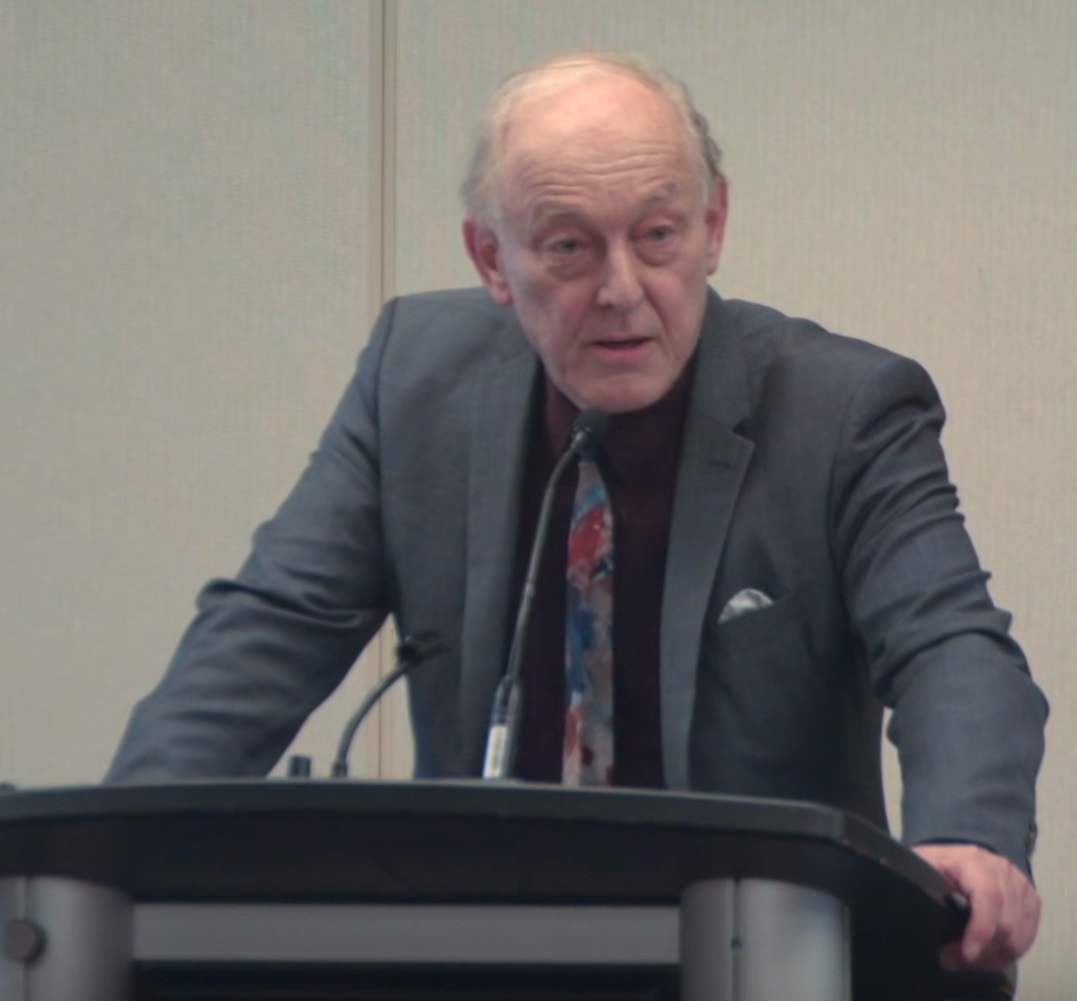“Legal and illegal activities had become inextricably intertwined.”
Source: The Globalization of Poverty and the New World Order - Second Edition - (2003), Chapter 18, Albania's IMF Sponsored Financial Disaster, p. 293
Michel Chossudovsky is a Canadian economist and author. He is a professor emeritus of economics at the University of Ottawa. Since 2001, he has been the president and director of the Centre for Research on Globalization, which publishes conspiracy theories. Chossudovsky is himself a proponent of 9/11 conspiracy theories.

“Legal and illegal activities had become inextricably intertwined.”
Source: The Globalization of Poverty and the New World Order - Second Edition - (2003), Chapter 18, Albania's IMF Sponsored Financial Disaster, p. 293
“Both Hindu, as well as Islamic fundamentalism, feed on the poverty of the masses.”
Source: The Globalization of Poverty and the New World Order - Second Edition - (2003), Chapter 10, India: The IMF'S "Indirect Rule", p. 155
“Modern capitalism appears totally incapable of mobilizing these untapped human and resources.”
Introduction, p. 7
The Globalization of Poverty and the New World Order - Second Edition - (2003)
Source: The Globalization of Poverty and the New World Order - Second Edition - (2003), Chapter 16, The "Thirdworldization" of the Russian Federation, p. 241
Source: The Globalization of Poverty and the New World Order - Second Edition - (2003), Chapter 7, Economic Genocide in Rwanda, p. 120
Introduction, p. 1
The Globalization of Poverty and the New World Order - Second Edition - (2003)
Source: The Globalization of Poverty and the New World Order - Second Edition - (2003), Chapter 19, Structural Adjustment in the Developed Countries, p. 303
“Relentlessly feeding on poverty and economic dislocation, a New World Order was taking shape.”
Preface to the Second Edition, p. xxii
The Globalization of Poverty and the New World Order - Second Edition - (2003)
Source: The Globalization of Poverty and the New World Order - Second Edition - (2003), Chapter 4, The World Bank and Woman's Rights, p. 67
Source: The Globalization of Poverty and the New World Order - Second Edition - (2003), Chapter 6, Somalia The Real Causes of Famine, p. 99
The Recolonization of Korea, Chapter 22, p. 340
The Globalization of Poverty and the New World Order - Second Edition - (2003)
Source: The Globalization of Poverty and the New World Order - Second Edition - (2003), Chapter 13, Debt and "Democracy" in Brazil, p. 200
Source: The Globalization of Poverty and the New World Order - Second Edition - (2003), Chapter 1, The Globalization of Poverty, p. 25
Source: The Globalization of Poverty and the New World Order - Second Edition - (2003), Chapter 16, The "Thirdworldization" of the Russian Federation, p. 240
Source: The Globalization of Poverty and the New World Order - Second Edition - (2003), Chapter 12, The Post War Economic Destruction of Vietnam, p. 177
"applied economics"
Source: The Globalization of Poverty and the New World Order - Second Edition - (2003), Chapter 2, Global Falsehoods, p. 27
Source: The Globalization of Poverty and the New World Order - Second Edition - (2003), Chapter 20, Global Financial Meltdown, p. 309
Source: The Globalization of Poverty and the New World Order - Second Edition - (2003), Chapter 9, Wreaking Ethiopia's Peasant Economy, p. 141
Source: The Globalization of Poverty and the New World Order - Second Edition - (2003), Chapter 14, IMF Shock Treatment in Peru, p. 225
“Global poverty is an "input" on the supply side; the global economic system feeds on cheap labor.”
Source: The Globalization of Poverty and the New World Order - Second Edition - (2003), Chapter 5, The Global Cheap-Labor Economy, p. 69 (See also: Rosa Luxemburg, Karl Marx)
Source: The Globalization of Poverty and the New World Order - Second Edition - (2003), Chapter 17, Dismantling Former Yugoslavia, p. 273
Source: The Globalization of Poverty and the New World Order - Second Edition - (2003), Chapter 17, Dismantling Former Yugoslavia, p. 257
Economic Warfare, Chapter 21, p. 327
The Globalization of Poverty and the New World Order - Second Edition - (2003)
Source: The Globalization of Poverty and the New World Order - Second Edition - (2003), Chapter 3, Policing Countries Through Loan "Conditionalities", p. 53